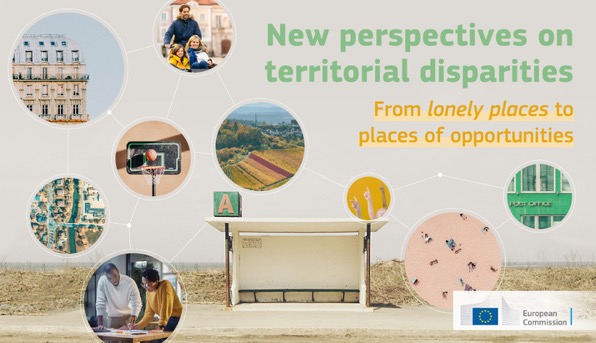Launch of the Science for Policy report “New perspectives on territorial disparities. From lonely places to places of opportunities”

date: 23/05/2022
Persisting territorial disparities across and within the EU represent, together with socioeconomic inequalities, a potential threat to the future of the European project. These inequalities are related to several spatial phenomena such as depopulation, limited access to services, lack of connection to the physical or digital network, and have been further exacerbated by the impact of the COVID-19 pandemic. Therefore, it is crucial to understand existing challenges and opportunities across European locations against territorial, social, environmental, demographic and economic disparities to produce evidence for improving policies coherently with the principles of leaving no place and no one behind.
This work introduces the exploratory concept of lonely places, which is spatially embedded and identifies a plurality of places that present a vulnerability in terms of lack or insufficient local endowment, accessibility, or connectivity. Although the term ‘lonely’ is mainly employed with reference to people, this study presents a unique spatial, multi-scalar and interdisciplinary approach to places. It aims at creating knowledge going beyond traditional operational classes of policy programmes (e.g., national or regional), the urban/ rural dichotomy, or administrative boundaries. This work also includes several dimensions (e.g., physical and digital infrastructure, access to school and, cultural facilities, democratic participation, migrants’ integration, etc.), which are all useful to create fully integrated policies.
The identification and assessment of lonely places are based on a quantitative analysis applying several methodologies to a combination of both traditional and experimental data, gathered at different levels of granularity - from the regional to the grid level- and mostly with European coverage. Findings from this research enhance and support evidence-based policy actions to favour cohesion among territories and avoid the possibility that places might act as an obstacle to individuals to achieving their full potential. Results presented in this report can also inform other specific EU policies and frameworks, as well as policies at national, regional, and local levels.
